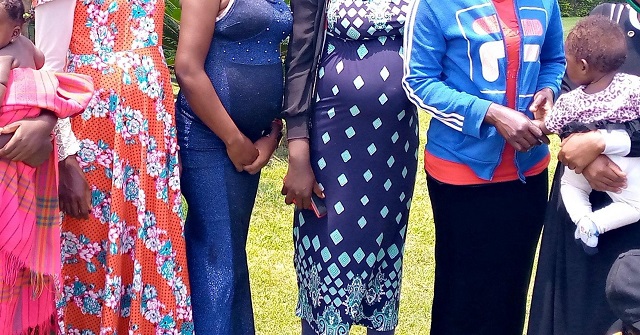
Kampala, Uganda | THE INDEPENDENT | A new report on the impact of coronavirus in selected refugee settlements across the country shows an increase in the number of pregnancies among school-going girls and young women compared to Ugandan nationals.
Titled “The situation impact of COVID-19 on school-going refugee girls and young women in Uganda”, the report shows that pregnancy cases among young girls and women in refugee settlements has increased by 0.8 percent from 3.3% to 4.1%.
The report whose findings were released on Wednesday in Palabek refugee settlement in Lamwo district was compiled by Forum for African Women Educationalists Uganda Chapter (FAWEU) between November and December 2020.
The report was compiled from a study conducted in three refugee settlements of Palabek in Lamwo district, Alere in Adjumani district, and Kyaka II in Kyegegwa district involving 284 young girls and women between 10-24 years.
According to the findings, the cases are higher than 1.8 percent among the nationals (young girls and women) who reported being pregnant during the lockdown at the time of the survey. In Palabek refugee settlement in particular, the percentage of young girls who reported being pregnant was as high as 4.8 percent.
The study also reveals that there was an increment in the numbers of refugee girls who engaged in sexual intercourse by 1.6 percent from 11.5 percent before the COVID-19 pandemic outbreak and lockdown to 13.1 percent during the lockdown.
Suzan Opok Tumusiime, the Executive Director FAWEU told Uganda Radio Network in an interview that the report is part of a national study conducted in 25 districts to assess the impact of COVID-19 among girls and young women.
She says the study was conducted to help understand how the situation was especially after the lockdown amidst a reported increase in the cases of teenage pregnancies across the country.
She notes that the study found that the impacts of the COVID-19 outbreak and lockdown instituted by the government among many other factors forced parents to start trading their young daughters for sex in order to beat the economic hardship.
Opok says that they also realized that sexual abuse against young girls was actually happening from homes as opposed to what was widely understood as a vice perpetrated by people outside.
According to the study, the high cases of pregnancies among young girls and increased sexual abuse were partly a result of food insecurity in refugee communities. The study also found that the reduction in the relief food ratio last year hit hard the refugee communities mostly girls and young women who beyond bearing the burden of caring for their households became susceptible to being lured into sex for survival.
Geoffrey Ocana, the Lamwo District Probation and Welfare officer says Palabek Ogili sub county, which hosts the refugee settlement has consistently since 2019 been leading in high cases of teenage pregnancies. Ocana says recent data from various health facilities in the district since the year began shows that 684 young girls got pregnant, with Palabek Ogili sub-county alone registering 224 cases.
He attributes the vice to among others broken family values, inadequate life skills and hunger that has forced young girls to trade sex for survival.
He says the district is now rolling out positive parenting within the community and sexuality education to young girls aged between 10 and 19 years to ensure the vice is curbed.
Julius Kamuze, the Palabek refugee settlement commandant says that poverty still contributes a bigger percentage to the growing teenage cases in the refugee settlement.
He also acknowledges that reduced food ration in the refugee settlement created a negative impact on the livelihood of the refugees. He says this stemmed from the slashing of donor funding. Kamuze has encouraged the refugee community to partner with the host and venture into agriculture.
Opened in April 2017, Palabek refugee settlement is home to some 56,020 South Sudanese refugees. Eighty-five percent of the refugees are women and children. Over 22 percent of the refugee population comprises young girls and women aged between 15-24 years.
*****
URN
 The Independent Uganda: You get the Truth we Pay the Price
The Independent Uganda: You get the Truth we Pay the Price





